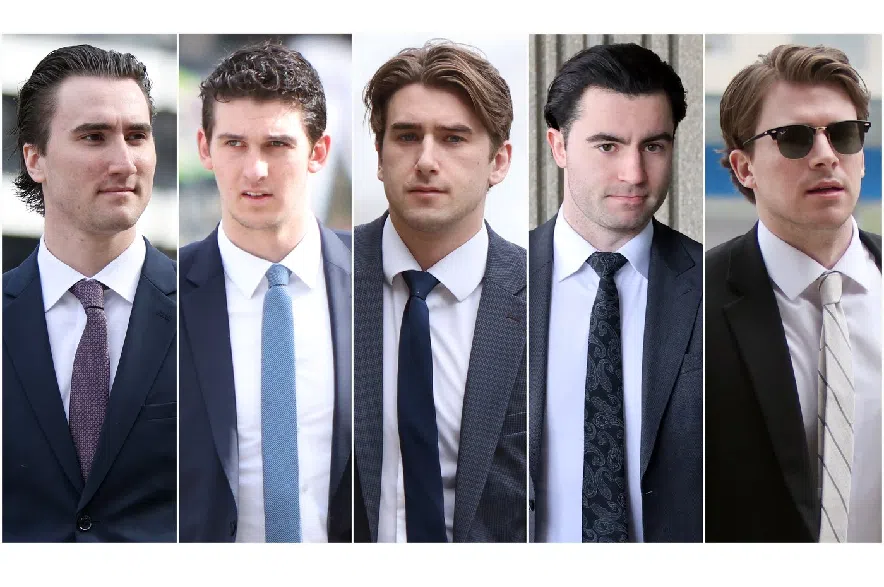An Ontario judge has rejected prosecutors’ final attempt to have a text message sent by a former world junior hockey player admitted as evidence in the sexual assault trial of five of his ex-teammates.
In the text, Brett Howden describes to another then-teammate seeing one of the accused, Dillon Dube, slap the complainant on the buttocks “so hard” that it looked like it hurt.
Read More:
- NDP will not be granted official party status: government House leader
- Reducing internal trade barriers tops priorities for businesses: KPMG poll
- Canada Post says parcel volume is down 50% from last year amid overtime ban
Prosecutors sought to have it admitted as a principled exception to hearsay, a mechanism through which hearsay — statements made outside court that lawyers raise to try to prove their contents are true — can be admitted as evidence if deemed necessary and reliable.
Superior Court Justice Maria Carroccia ruled this morning that the text does not meet the test for reliability and therefore cannot be admitted.
Dube, Michael McLeod, Alex Formenton, Carter Hart and Callan Foote have pleaded not guilty to sexual assault, and McLeod has also pleaded not guilty to an additional charge of being a party to the offence of sexual assault.
The trial centres on an encounter that took place in a London, Ont., hotel room in the early hours of June 19, 2018.
Many of the players on the 2018 national world junior team were in the city at the time for a Hockey Canada gala marking their victory at that year’s championship, court has heard.
Howden sent Taylor Raddysh the text a week later as part of a broader exchange on the events of that night and the news that Hockey Canada was looking into what happened.
Prosecutors previously sought to have the text related to the slap admitted as evidence as a “past recollection recorded” — a prior statement captured in some form — due to Howden’s lack of memory even after reviewing his previous statements.
Part of the test for that is establishing whether the witness can vouch for the statement’s truthfulness, court heard. Carroccia found that while Howden said he wasn’t trying to lie when he sent the text, he didn’t say it was true.
The Crown said last week that applying to have the message admitted as a principled exception to hearsay was the last method at its disposal.
This report by The Canadian Press was first published May 26, 2025.
The Canadian Press











